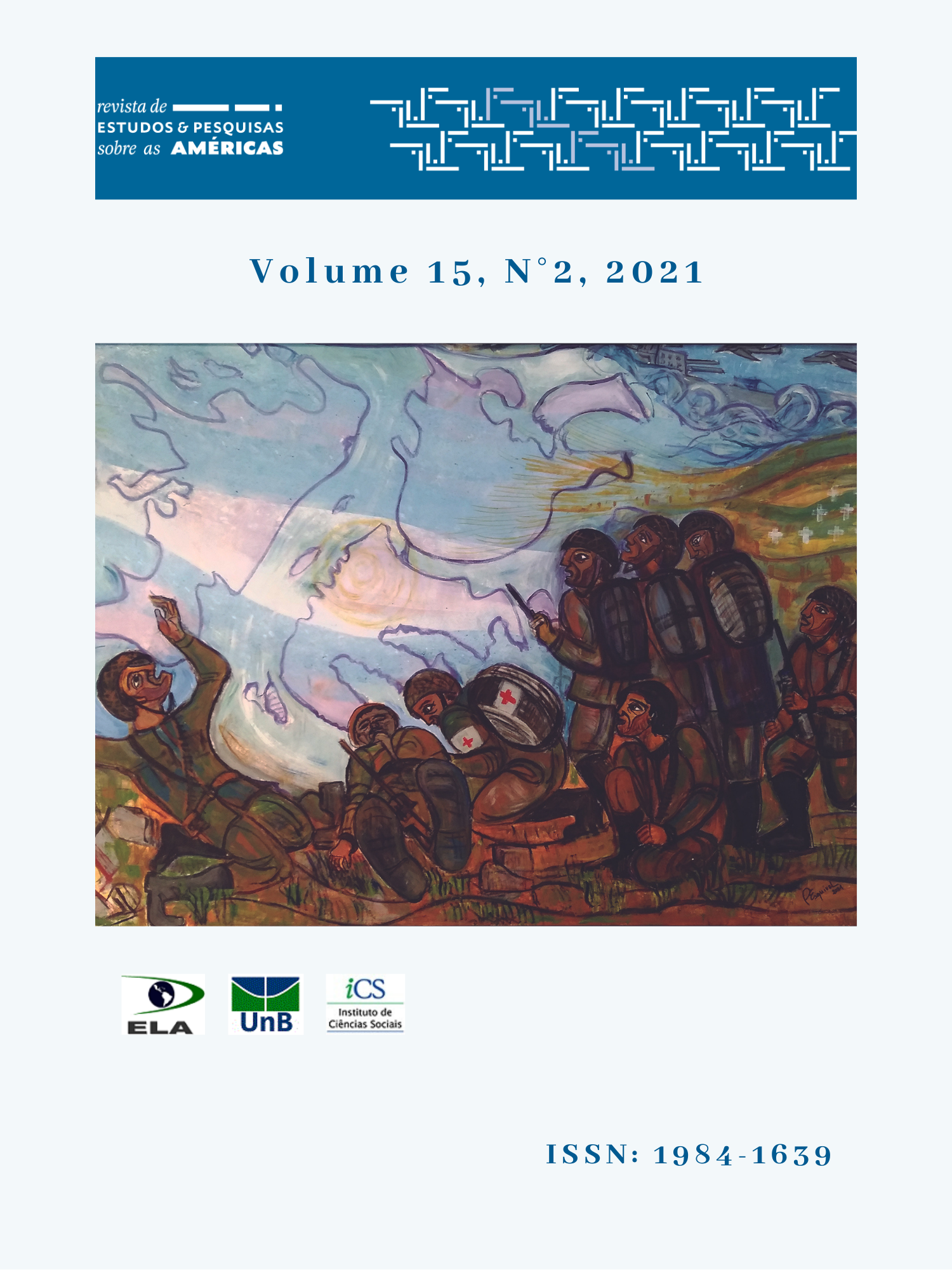Memory as a tool of (re)construction
The identity restitution of appropriate children during the last Argentine dictatorship
DOI:
https://doi.org/10.21057/10.21057/repamv15n2.2021.36432Keywords:
Memory – Identity – Restitution – ApropriationAbstract
The appropriation of children was a systematic and generalized practice of the last civic-military dictatorship (1976-1983). This article focuses on the ways in which –personal, family, social– memories operate in the processes of identity restitution. In particular, it seeks to study the intrinsic relationship between memories and identity with the aim of analyzing the elements and discourses that influenced the construction and reconstruction of the memories of the restituted people, with special emphasis on the prevailing socio-political situation at the time of each restitution. Through the use of oral history, the life histories of Tatiana Sfiligoy, Gonzalo and Matías Reggiardo Tolosa and Pablo Javier Gaona Miranda are investigated. Thus, the work is stuctured around the following questions: How did each person (re)construct the memory of their own history from the restitution process? What discourses contributed to memory processes? How did social memory operate in each case? Throughout the article we will explore how new signifiers are incorporated during restitution processes, which imply a reconstruction of memories and, therefore, a transformation of identity
References
ABUELAS DE PLAZA DE MAYO. La Historia de Abuelas. 30 años de búsqueda (1977-2007), Buenos Aires, 2007
ALSHEH, Yehonatan. “¿Puede un ethnoscape heterogéneo constituir un genos y su exterminio un genocidio?” Revista de Estudios sobre Genocidio, vol 5. Buenos Aires: EDUNTREF, 2011
ARGENTO, Analía. De vuelta a casa. Historias de nietos restituidos. Buenos Aires: Marea, 2016
BESSE, Juan. “Entre dos muertes. Escansiones y silencios en las primeras narraciones historiográficas acerca
del 16 de junio de 1955” Revista Memória em Rede, Pelotas, v.2, n.7, 2012
CASOLA, Natalia. “La niñez chilena exiliada en Buenos Aires. La escuela como ventana a la experiencia infantil (1974-1983)” Anuario del Instituto de Historia Argentina, 19(1), e091, 2019. https://doi.org/10.24215/2314257Xe091
CONADEP. Nunca Más. Buenos Aires: Eudeba, 1984.
D’ANTONIO, Débora y EIDELMAN, Ariel. “Antecedentes y genealogía de la historiografía sobre la Historia
Reciente en la Argentina” Nuevo Mundo Mundos Nuevos. Buenos Aires, 2013
DAVOINE, Françoise y GAUDILLIERE, Jean-Max. Historia y Trauma. La locura de las guerras. Buenos Aires: Fondo de Cultura Económica, 2011.
EILBAUM, Lucía y MEDEIROS, Flavia. “Entre rotinas, temporalidades e moralidades: a construção de processos de repercussão em dois casos etnográficos” En: KANT DE LIMA, Roberto; EILBAUM, Lucía y
MEDEIROS, Flavia (orgs). Casos de repercussão. Perspectivas antropológicas sobre rotinas burocráticas e moralidades. Rio de Janeiro: Consequência, 2017
FELD, Claudia y SALVI, Valentina. Las voces de la represión. Declaraciones de perpetradores de la dictadura argentina. Buenos Aires: Miño y Dávila, 2019
GESTEIRA, Soledad. Entre el activismo y el parentesco. Lo público, lo íntimo y lo político. Las organizaciones sociales de personas que buscan sus orígenes. Tesis (Doctorado en Antropología). Universidad de Buenos Aires, Buenos Aires, 2016
GRAMMÁTICO, Karin. “Las ‘mujeres políticas’ y las feministas en los tempranos setenta: ¿Un diálogo (im) posible?” En: ANDÚJAR, Andrea; D’ANTONIO, Débora (comps) Historia, género y política en los ‘70.
Buenos Aires: Feminaria Editora, 2005
HALBWACHS, Maurice. Los marcos sociales de la memoria. Caracas: Anthropos Editorial, 2004
HERRERA, Matilde y TENEMBAUM, Ernesto. Identidad. Despojo y Restitución. Buenos Aires: PROAMBA, 2001
Downloads
Published
Issue
Section
License
Copyright (c) 2022 Ana Laura Sucari

This work is licensed under a Creative Commons Attribution-NonCommercial 4.0 International License.
The published material is the property of the Journal, and may be reproduced in whole or in part with indication of the source.
Copyright: Authors will be responsible for obtaining the copyright of the material used. Authors who publish in this journal agree to the following terms:
a)Authors retain the copyright and grant the journal the right of first publication, with the work simultaneously licensed under
the Creative Commons Attribution License which allows the sharing of work with acknowledgment of authorship and initial publication in this journal.
b) Authors are authorized to take additional contracts separately, for non-exclusive distribution of the version of the work published in this journal (eg, publish in institutional repository or as a book chapter), with acknowledgment of authorship and initial publication in this journal.
c) Authors are allowed and encouraged to publish and distribute their work online (eg in institutional repositories or on their personal page) at any point before or during the editorial process, as this can generate productive changes as well as increase the impact and the citation of the published work (See The Effect of Free Access).
















